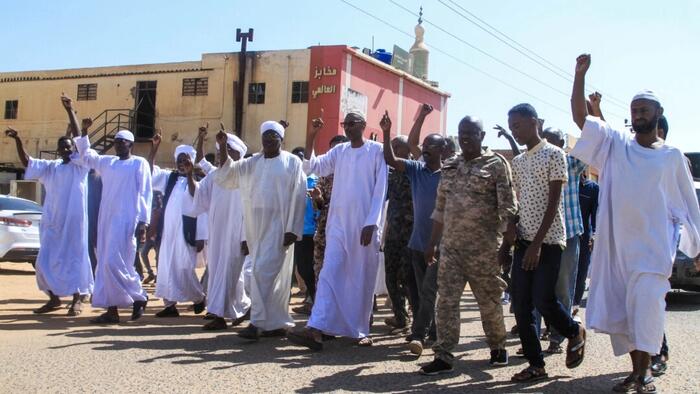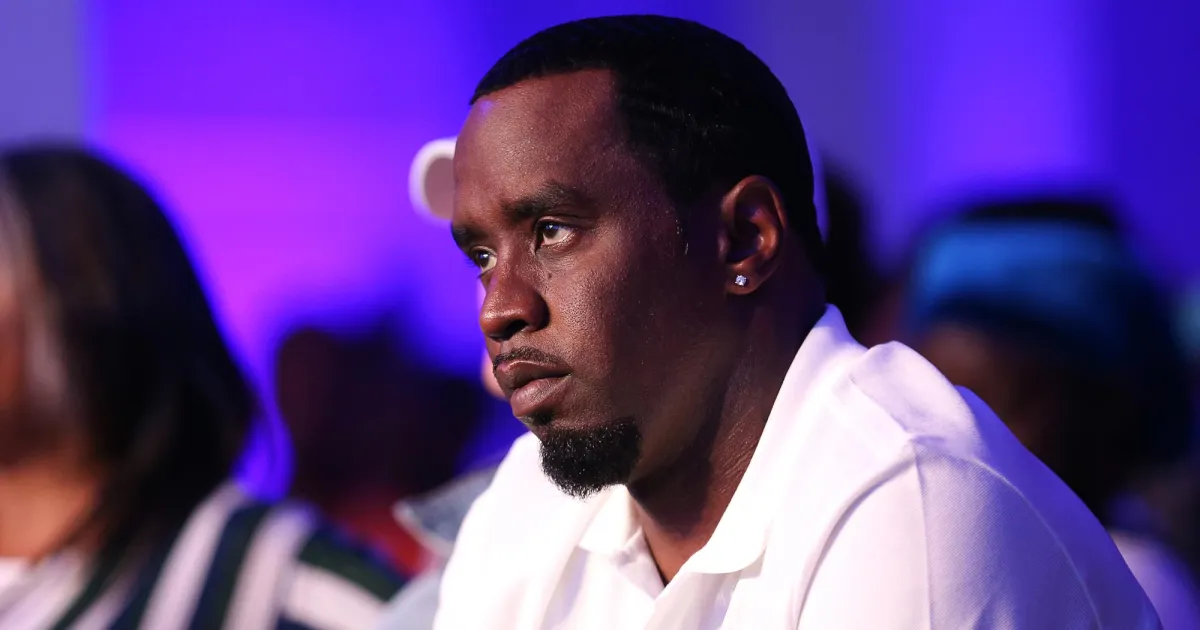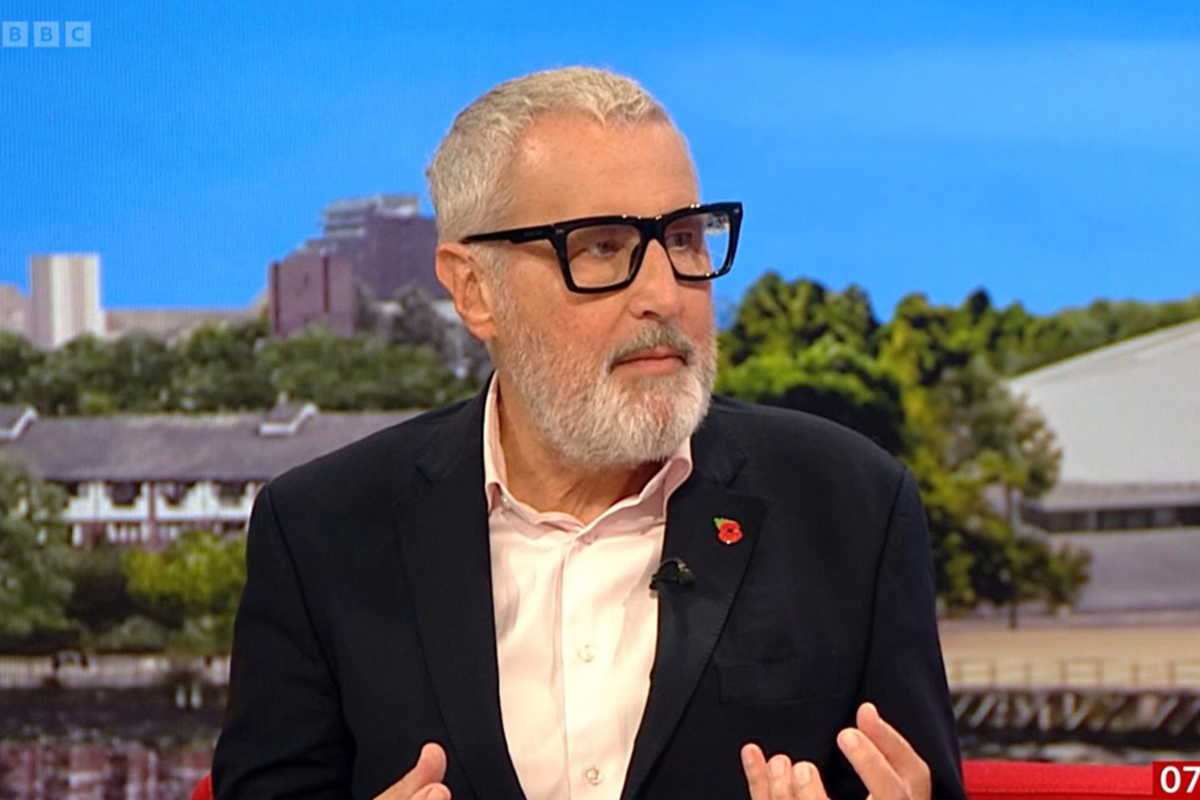Copyright ZeroHedge

The United States is working with its Arab partners to bring an end to the conflict in Sudan, White House press secretary Karoline Leavitt said on Nov. 4, describing the situation as “very complicated.” Speaking at a press briefing, Leavitt said Washington is “actively engaged in efforts” to mediate peace and remains “committed to working with our international partners, including Quad members—Egypt, Saudi Arabia, the UAE—as well as others, to lead a negotiated peace process that addresses both the immediate humanitarian crisis and the longer-term political challenges.” The Quad refers to an informal diplomatic grouping of the United States and the three Arab countries that coordinate over shared regional interests. As Evgenia Filimianova details below for The Epoch Times, last week, the World Health Organization (WHO) said it was appalled by reports that the Rapid Support Forces (RSF), a Sudanese paramilitary group, killed more than 460 people at a hospital in the western city of el-Fasher. The RSF denied the accusations. The patients and their companions were reportedly killed on Oct. 29 at Saudi Hospital by RSF members in the city of el-Fasher, WHO Director-General Tedros Adhanom Ghebreyesus said. Tedros said that before this latest attack, the WHO had verified 285 attacks on health care facilities in Sudan with at least 1,204 deaths and over 400 injuries of health workers and patients, since the start of the conflict in 2023. The U.S. State Department condemned the reported mass atrocities and called on RSF to “stop engaging in retribution and ethnic violence.” “The United States will continue working with partners to find a peaceful path forward. There isn’t a viable military solution, and external military support only prolongs the conflict. The United States urges both parties to pursue a negotiated path to end the suffering of the Sudanese people,” the State Department said in a Nov. 1 statement posted on X. Leavitt acknowledged an uptick in reporting on the conflict and said she had discussed the developments with Secretary of State Marco Rubio earlier that day. She added the administration was in “pretty frequent communication” with Arab partners about the conflict. The war in Sudan has devastated Africa’s third-largest nation. The fighting between the Sudanese Armed Forces and the RSF has claimed more than 61,000 lives in Khartoum State alone, according to a 2024 study by the London School of Hygiene and Tropical Medicine’s Sudan Research Group. The United Nations has said that over seven million people have been displaced within Sudan as of mid-October, compounding an already dire humanitarian crisis. A medic waits in a makeshift clinic as displaced Sudanese gather after fleeing el-Fasher city in Darfur, in Tawila, Sudan, Oct. 29, 2025. Mohamed Jamal/Reuters Diplomatic Push for Cease-Fire In September, Washington and its Quad partners—Egypt, Saudi Arabia, and the United Arab Emirates—jointly proposed a three-month humanitarian truce in Sudan, to be followed by a permanent cease-fire and a nine-month transition to civilian rule. The Sudanese government rejected the proposal at the time. Two weeks later, on Oct. 24, the United States hosted the Quad members in Washington to advance collective efforts toward peace and stability in Sudan. The group reaffirmed its commitment to the September plan and agreed to form a Joint Operational Committee to coordinate urgent priorities, including humanitarian access, a cease-fire, and an end to external support for the warring sides. U.S. President Donald Trump “wants peace, and we are united in our commitment to ending the suffering of the Sudanese people,” U.S. senior adviser for Arab and African affairs, Massad Boulos, said following the meeting. Boulos has been leading the diplomatic outreach in the region. Over the weekend, he held talks with Egyptian Foreign Minister Badr Abdelatty and later met with Arab League officials in Cairo. He said discussions in Egypt focused on “expanding humanitarian access and advancing efforts to resolve the conflict in Sudan,” as well as on counterterrorism cooperation and regional migration issues. Boulos said the region’s most urgent challenges were addressed during his meeting with Arab League Secretary-General Ahmed Aboul Gheit. “We condemned the horrific crimes against civilians in El Fasher and called for urgent action to protect civilians and end the violence,” he said. Escalating Atrocities and Global Reaction The assault on el-Fasher in late October drew global condemnation. Reports from aid organizations and residents described mass killings, sexual violence, and attacks on humanitarian workers during the offensive. “We are deeply disturbed by the horrific escalation of violence and attacks against civilians in el-Fasher,” Boulos said on Oct. 29. “The deliberate targeting of vulnerable populations through acts of violence and retribution is both abhorrent and unacceptable.” He said those responsible “must be held accountable,” and urged RSF leaders to turn commitments to protect civilians into “concrete actions on the ground.” At a forum in Qatar on Nov. 4, U.N. Secretary-General Antonio Guterres urged Sudan’s warring parties to “come to the negotiating table” and end the “nightmare of violence.” Sudanese men who fled al-Fasher city, after Sudan's paramilitary forces killed hundreds of people in the western Darfur region, collect water at a camp in Tawila, Sudan, on Nov. 1, 2025. Mohammed Bakry/AP The foreign ministers of Germany, Jordan, and the United Kingdom on Nov. 1 jointly called for an immediate cease-fire in Sudan. “For too long, this terrible conflict has been neglected, while suffering has simply increased,” British Foreign Secretary Yvette Cooper said at the Manama Dialogue security summit in Bahrain on Nov. 1. She pledged a further $6.5 million of humanitarian support in response to the violence in el-Fasher.



